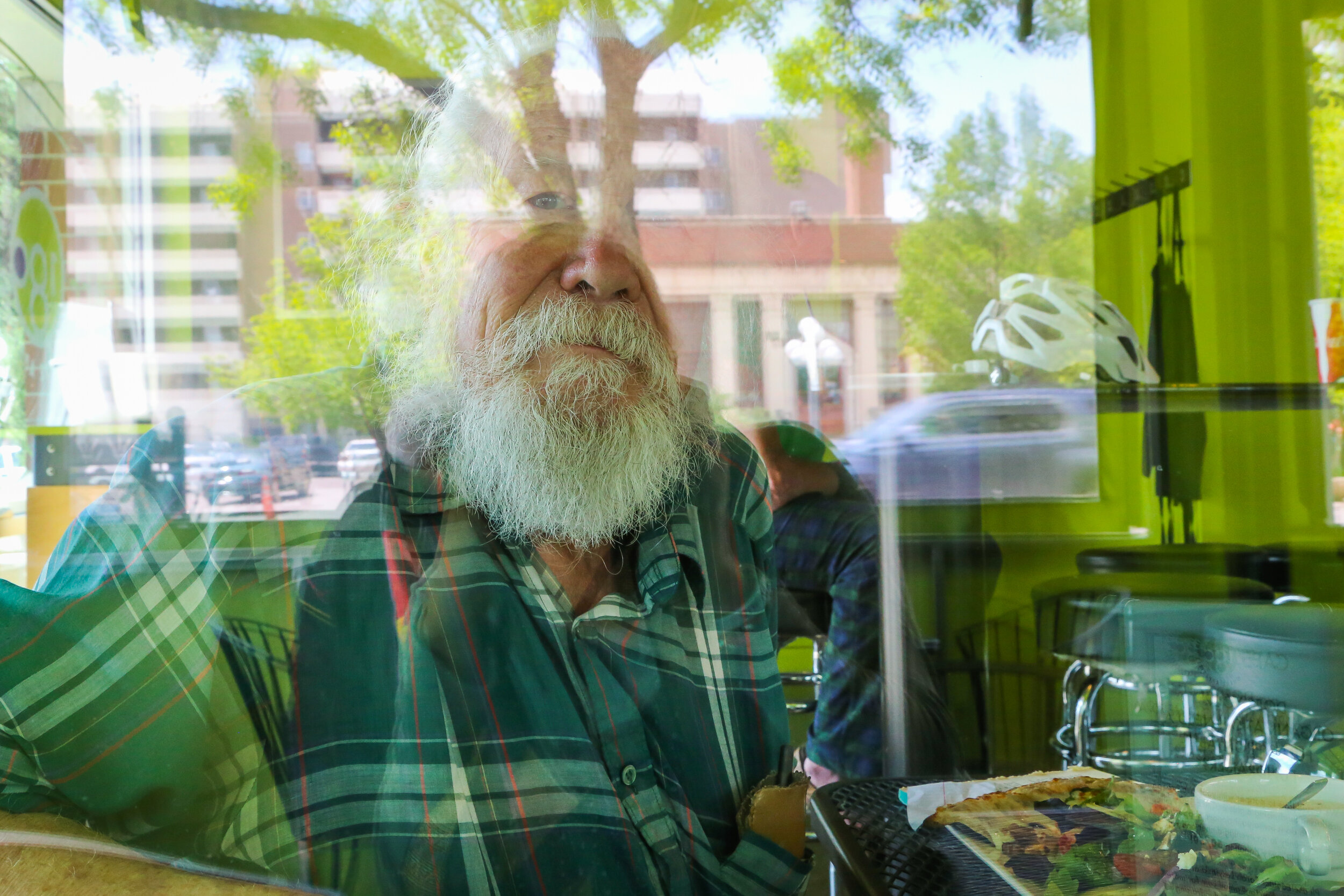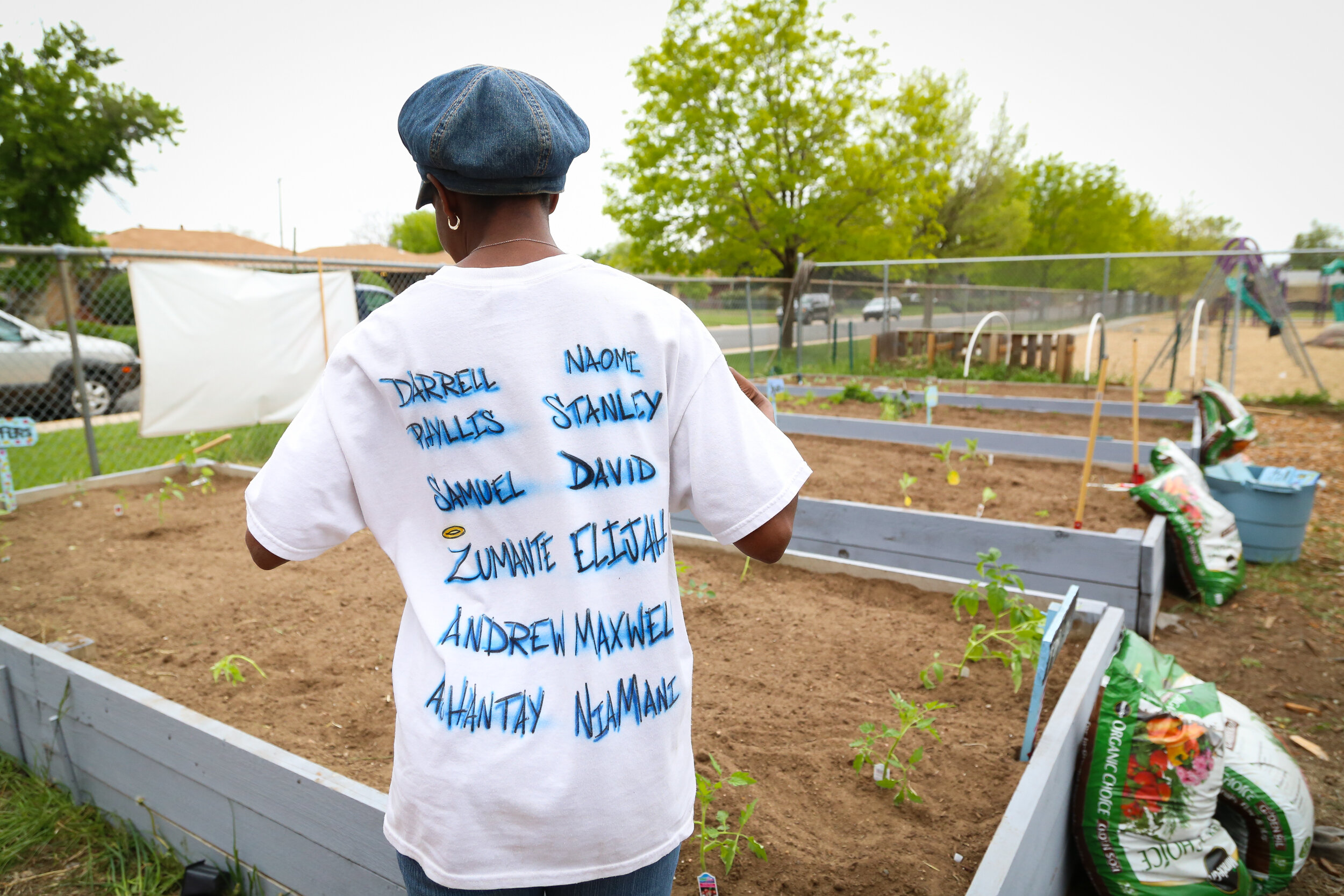Planting Justice -
Growing Communities
Food justice is communities exercising their right to grow, sell, and eat healthy food. The movement has increased the transparency of much bigger inequalities in public policy, race, and income. The people behind the food justice movement in Denver, Colorado let us into their lives in 2014.
The question I set out to answer was: "How can community-based food programs increase food justice and add to the public good?” Here are the stories.
Cafe 180
The ‘pay what you can movement’ started in 2003 at a small cafe in Salt Lake City, Utah and has since grown to corporate franchises also adopting the idea, like #PaneraBread in St. Louis. Denver’s Cafe 180 aims to reduce hunger by providing meals to everyone, regardless of their ability to pay. It is about dignity, self-sufficiency, and nourishment. At the cafe, community members can come in and either pay what they can or work for one hour to receive a meal. Empowerment and choice is the secret ingredient.
The cafe is run by volunteers and a few staff. They have a large group of donors, such as Whole Foods, different churches, and law offices. The average diner pays $8-9 dollars and they encourage customers to pay more if they can so that someone else can pay less. Cafe 180 focuses on health and they try to grow most of their food which in Colorado can be a hard task. They work with four community gardens. They are also partnered with the Denver Family Institute to provide counseling in exchange for volunteering to customers who need assistance. Most importantly, Cafe 180 brings people together that would not normally interact.
Richard (right image) is known at Cafe180 as Santa Claus, is a regular to the cafe. Years ago, he traveled the world as a fiddle player in a popular band and is a firm believer that music is the key to happiness. He now lives in Boulder with his ex-wife whom he is still friends with. He is retired and said it is really hard to live solely on social security – the cafe helps. With an abundance of free time, he said, he rides the bus into Denver a few times a week. When I approached him he was sitting in a chair eating quietly with a book open. His food was getting cold, but he enjoyed talking to me about life. The cafe fills his stomach, he said, but he comes for the environment, people and to support the idea.
The people I spent time with each embody their own unique approach to the movement, but share the common goal of challenging the injustices that exist in our food system. They are advocates and activists of societal transformation that originated from a realization of the inequalities in our food system and its impact on their community.
The GrowHaus
The GrowHaus is a non-profit urban farm and education center in northeast Denver’s Elyria-Swansea neighborhood. The neighborhood is a food desert. Because of its proximity to downtown, long ago the neighborhood became surrounded by manufacturing and transportation infrastructures. This image was taken just outside the GrowHaus toward the community and railroads, factories, and warehouses are the most obvious landmarks.
They aim to recreate the current food system in their neighborhood. The various components include, food production through aquaponic and hydroponic growing strategies, and neighborhood engagement. The GrowHaus provides food distribution through providing reduced priced food boxes and a market for the community, and food education through classes and internships to promote sustainability.
THE LUCERO FAMILY
Smith Elementary School is in the Park Hill neighborhood of Northeast Denver. At the school, 12% of the parents are incarcerated, 12% live in shelters, and 99.5% of the students receive free of reduced lunch. Despite these statistics, the school is actively engaged in the community and one family in particular makes sure of this.
A family of 12, the Lucero’s, are present at every school event. In the summer of 2009 one of their children, Zumante, passed away from complications with asthma. In his honor, a garden program began at Smith Elementary because of his love for food. Partnered with Slow Food Denver it is a way to bring fresh produce to a food desert community. Zumante’s Garden is an educational garden for the students and community and it grows everything from corn, beans and squash to watermelon and strawberries.
"PIZZA was his favorite food," his mom said.













